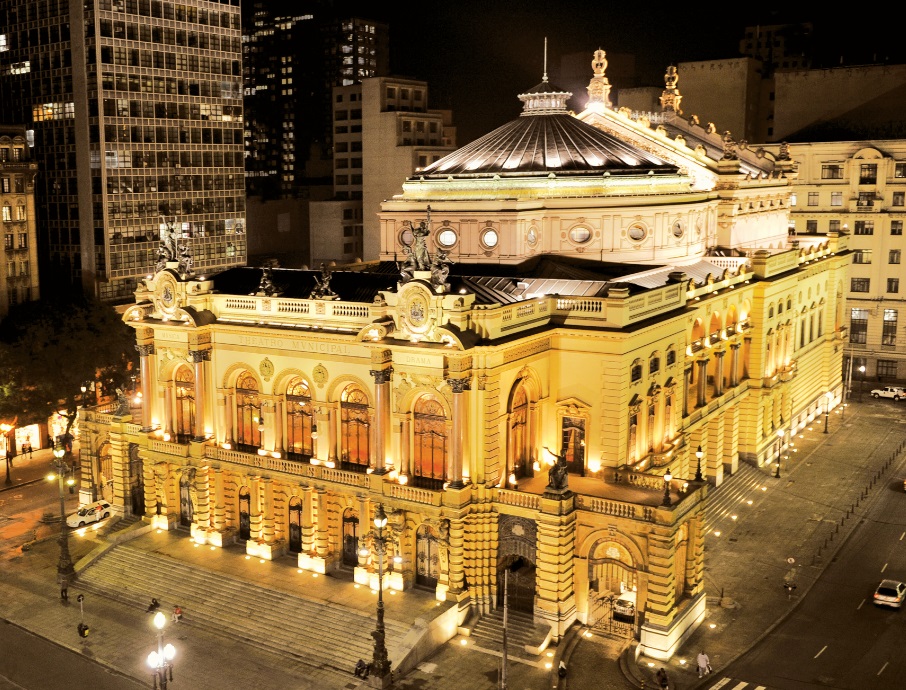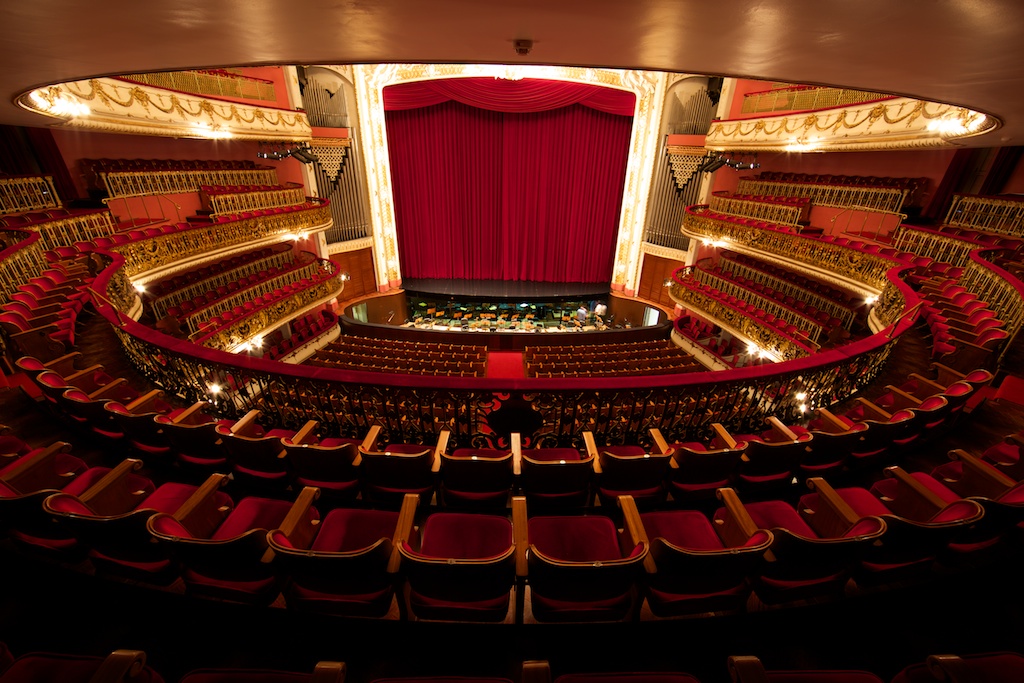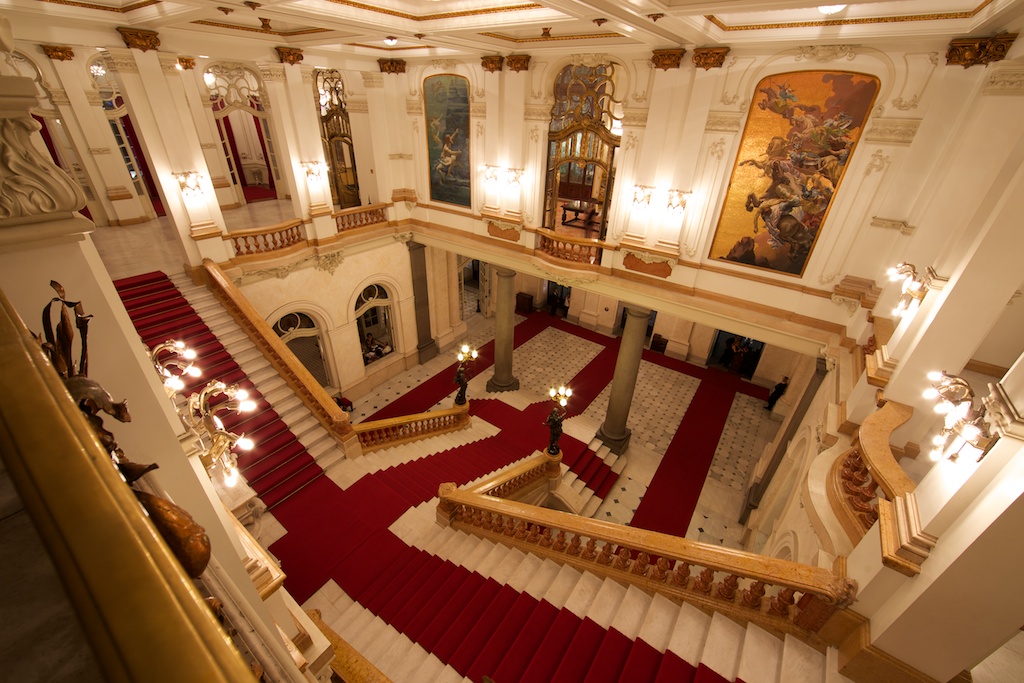SÃO PAULO, BRAZIL – Theatro Municipal (“Municipal Theatre”), one of the most traditional artistic venues in São Paulo, is undergoing a transformation as it seeks greater accessibility and attendance by all São Paulo citizens. The 2020 Season, announced this week, provides options for music, dance, circus, and theatre lovers of all ages. The aim is to bring the audience closer to the venue, still regarded by many as inaccessible.

Next year will feature seven operas in six productions, mixing more classical pieces and new format interpretations. According to Hugo Possolo, artistic director of the Theater, the most classical performances are still in evidence, aiming to attract new spectators and present this art to new audiences. “The goal is to represent all languages, not only the primary ones, like opera and concert. Not leaving this aside, as we have even increased the number of operas this year, but rather introducing new and different ways. ”
Data from a survey report on audience profile and satisfaction conducted by the GPA Statistical Surveys showed that in 2019 more performances were attended by new spectators. Forty-two percent attended the Municipal Theatre for the first time. In 2018, the number was lower, 34 percent. In addition, the age bracket up to 29 was the most present in the shows, representing 37 percent of the total audience compared to 28 percent in the same period last year.
“The audience in concert, in dances, in operas, is new. A good part of this audience is younger. That means we’re approaching this language, people are getting closer to it, so it’s not that far away”.
“Art is taking up space. We need to engage the city’s municipal facilities with art. We are engaging the city with art and showing that it is valuable, that it has meaning and that it cannot be attacked”.
Lyric Season
According to Possolo, the idea behind the operas is “to bring new contemporary subject languages that have to do with today and that also bear a feminine perspective”.
‘Aida’, by Italian composer Verdi, opens the lyrical season, directed by Bia Lessa. The drama is set in ancient Egypt and tells the story of love between an Ethiopian princess who is captured and enslaved and an Egyptian general. The opera has been staged at the Municipal Theater of São Paulo in 1912, 1993 and 2013, but it is the first time that a Brazilian woman will be in charge of the stage direction at the Municipal.
The second staging features a double program of two short operas, based on plays by Plínio Marcos: ‘Navalha na Carne’, by Leonardo Martinelli, and ‘Homens de Papel’, by Elodie Bouny. This is the first time the Theater commissions operas in its 108-year history.

Later, a great classic: ‘Don Giovanni’, masterpiece by Wolfgang Amadeus Mozart about a conqueror who approaches topics such as machismo, abuse, revenge, and death. The drama will be directed by Lívia Sabag and, as ‘Aida’, this is also the first time a woman is in charge of production. The opera premiered in Brazil at the Municipal Theater in 1956 and was last staged in 2012.
The fourth opera of the year is a contemporary title, ‘Benjamin’, by German composer and conductor Peter Ruzicka. The opera will be translated into Portuguese and tells the story of German philosopher Walter Benjamin, in his flight from the Nazi regime.
The penultimate staging of the year is ‘Fidelio’, Beethoven’s only opera, and it will be staged as part of celebrations of the German composer’s 250th birthday. The production will take place in November outside the Municipal Theater’s showroom, as part of the “Rolê no Municipal” program, in a venue open to the general public that will soon be announced.
Closing the 2020 lyrical season, ‘Die Fledermaus’, by Johann Strauss II, with the Orquestra Experimental de Repertório (“Experimental Orchestra of Repertoire”), conducted by Jamil Maluf. The operetta takes place at a New Year’s Eve party.
Symphonic Programming and Concerts
In addition to the opera, the Theater will feature an extensive symphonic program, with 16 symphonic programs from March to December, ending with a total of 23 performances in the Show Room. Celebrated works such as Mahler’s 3rd symphony, ‘Christ on the Mount of Olives’, by Beethoven, works by Richard Strauss, Serguei Prokofiev and modern composers such as Philip Glass and Igor Stravinsky’s ‘Symphony of Psalms’.
Beethoven’s 250th birthday will also be celebrated with a marathon of eight concerts dedicated to the composer, in December, including all nine symphonies, performed by the Municipal Symphony Orchestra and the Lyric Choir and the Paulistano Choir.
Accessibility and Diversity
In 2019, 27 percent of the Theatre’s programming was free, according to the survey. According to Possolo, this trend is here to stay. “We are in search of a more affordable pricing policy. We have democratized and driven the space considerably”.
The project, which brought the plays back to the regular programming of one of the most important stages in São Paulo, will also continue in 2020. The Theater brings professional productions that have already been exhibited, but can now be viewed for R$5 (US$1.25).

New Modernists
“The first ‘New Modernists of 2019’ was a milestone. It’s an entire cast of black artists taking this stage. It’s a paradigm break, a very enthusiastic audience, and I think this same enthusiasm was shown at the Emicida concert, which was another very important milestone this year. This must be no exception”.
In all, there will be six shows, including two operatic projects that go beyond the main lyric season at the Municipal Theatre. In April, the ‘Guarany Em Chamas’ (“Guarany in Flames”), based on the Opera ‘Il Guarany’, by Brazilian composer Carlos Gomes, combines the Municipal Symphony Orchestra, the Lyric Choir and guest soloists in an experimental show that will address the issue of deforestation, attack and the situation of indigenous peoples.
In July, another experimental performance, ‘Carmen Deconstructed’, with extracts from the opera ‘Carmen’, by Bizet, with the Municipal Symphony Orchestra and the Lyric Choir. Alessandro Sangiorgi, assistant conductor of the OSM, will be in charge. The editing will give room to the reevaluation of the female characters inside the operas, which in their majority are portrayed as submissive, innocent and fragile.
“Diversity will be represented here. We have had performances of music, dance, circus, theatre. These blends will come and much more, and this is greatly related to the Municipal becoming a beacon of multiculturalism. I believe that because the Municipal is a big showcase and a big window, it is very exposed, it is the heart of the city. The more accessible it is, the more it shows that the arts can be everywhere”.
The second edition of the ‘Eté-Festival Corpo’ will take place between August and September, combining multiple forms of body expression with dance, theatre, and circus shows; and in October there will be a special and free program dedicated to children and family with the project ‘Crianças no Municipal’ (‘Children in the Municipal’).
The Municipal Theater will additionally host an extensive program by the Municipal Secretariat of Culture planned for the whole year, starting with the special anniversary of the city, January 25th; and the festival ‘Verão Sem Censura’ (Summer Without Censorship), which intends to host all cultural activities censored by agencies linked to the federal government. It hosts the ‘Virada Cultural’ and the international exhibitions of Theatre and Cinema, supported by the Secretariat. It celebrates Samba Day and promotes the Circus Gala Night, on International Clown Day.
Source: G1

